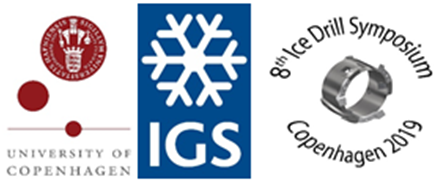Speaker
Description
Following the failed 2012 attempt to access Subglacial Lake Ellsworth in West Antarctica, using a specially designed hot water drill, a programme review was undertaken. An international board of experts assessed the reasons for the failure, and made recommendations on the modifications necessary to facilitate successful deep (>2 km) subglacial access using the technique of hot water drilling. The lessons learnt were substantial and over four Antarctic field seasons, various hot water drilling equipment and procedural modifications were tested and optimised, successfully delivering numerous access holes through Filchner-Ronne Ice Shelf. On January 8th, 2019, the culmination of this work was demonstrated on Rutford Ice Stream, West Antarctica, when the British Antarctic Survey led BEAMISH project successfully hot water drilled a 2152 m deep subglacial access hole, reaching the sediments beneath the ice stream. A further two holes, at different sites, were then drilled over the following 5 weeks. Here we discuss the points raised by the review board and present the advances required for recent successes and for the future research of subglacial lakes beneath thick continental ice sheets.

